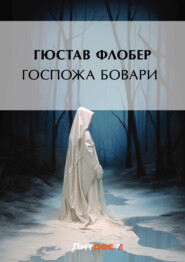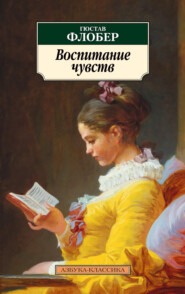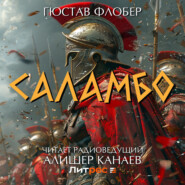По всем вопросам обращайтесь на: info@litportal.ru
(©) 2003-2024.
✖
The Temptation of St. Antony; Or, A Revelation of the Soul
Настройки чтения
Размер шрифта
Высота строк
Поля
These images make their appearance abruptly, in successive shocks, standing out from the darkness like pictures of scarlet above a background of ebony.
Their motion becomes more rapid; they pass in a dizzy fashion. At other times they stop, and, growing pale by degrees, dissolve – or, rather, they fly away, and instantly others arrive in their stead.
Antony droops his eyelids.
They multiply, surround, besiege him. An unspeakable terror seizes hold of him, and he no longer has any sensation but that of a burning contraction in the epigastrium. In spite of the confusion of his brain, he is conscious of a tremendous silence which separates him from all the world. He tries to speak; impossible! It is as if the link that bound him to existence was snapped; and, making no further resistance, Antony falls upon the mat.
CHAPTER II.
The Temptation of Love and Power
THEN, a great shadow – more subtle than an ordinary shadow, from whose borders other shadows hang in festoons – traces itself upon the ground.
It is the Devil, resting against the roof of the cell and carrying under his wings – like a gigantic bat that is suckling its young – the Seven Deadly Sins, whose grinning heads disclose themselves confusedly.
Antony, his eyes still closed, remains languidly passive, and stretches his limbs upon the mat, which seems to him to grow softer every moment, until it swells out and becomes a bed; then the bed becomes a shallop, with water rippling against its sides.
To right and left rise up two necks of black soil that tower above the cultivated plains, with a sycamore here and there. A noise of bells, drums, and singers resounds at a distance. These are caused by people who are going down from Canopus to sleep at the Temple of Serapis. Antony is aware of this, and he glides, driven by the wind, between the two banks of the canal. The leaves of the papyrus and the red blossoms of the water-lilies, larger than a man, bend over him. He lies extended at the bottom of the vessel. An oar from behind drags through the water. From time to time rises a hot breath of air that shakes the thin reeds. The murmur of the tiny waves grows fainter. A drowsiness takes possession of him. He dreams that he is an Egyptian Solitary.
Then he starts up all of a sudden.
"Have I been dreaming? It was so pleasant that I doubted its reality. My tongue is burning! I am thirsty!"
He enters his cell and searches about everywhere at random.
"The ground is wet! Has it been raining? Stop! Scraps of food! My pitcher broken! But the water-bottle?"
He finds it.
"Empty, completely empty! In order to get down to the river, I should need three hours at least, and the night is so dark I could not see well enough to find my way there. My entrails are writhing. Where is the bread?"
After searching for some time he picks up a crust smaller than an egg.
"How is this? The jackals must have taken it, curse them!"
And he flings the bread furiously upon the ground.
This movement is scarcely completed when a table presents itself to view, covered with all kinds of dainties. The table-cloth of byssus, striated like the fillets of sphinxes, seems to unfold itself in luminous undulations. Upon it there are enormous quarters of flesh-meat, huge fishes, birds with their feathers, quadrupeds with their hair, fruits with an almost natural colouring; and pieces of white ice and flagons of violet crystal shed glowing reflections. In the middle of the table Antony observes a wild boar smoking from all its pores, its paws beneath its belly, its eyes half-closed – and the idea of being able to eat this formidable animal rejoices his heart exceedingly. Then, there are things he had never seen before – black hashes, jellies of the colour of gold, ragoûts, in which mushrooms float like water-lilies on the surface of a pool, whipped creams, so light that they resemble clouds.
And the aroma of all this brings to him the odour of the ocean, the coolness of fountains, the mighty perfume of woods. He dilates his nostrils as much as possible; he drivels, saying to himself that there is enough there to last for a year, for ten years, for his whole life!
In proportion as he fixes his wide-opened eyes upon the dishes, others accumulate, forming a pyramid, whose angles turn downwards. The wines begin to flow, the fishes to palpitate; the blood in the dishes bubbles up; the pulp of the fruits draws nearer, like amorous lips; and the table rises to his breast, to his very chin – with only one seat and one cover, which are exactly in front of him.
He is about to seize the loaf of bread. Other loaves make their appearance.
"For me! … all! but – "
Antony draws back.
"In the place of the one which was there, here are others! It is a miracle, then, exactly like that the Lord performed! … With what object? Nay, all the rest of it is not less incomprehensible! Ah! demon, begone! begone!"
He gives a kick to the table. It disappears.
"Nothing more? No!"
He draws a long breath.
"Ah! the temptation was strong. But what an escape I have had!"
He raises up his head, and stumbles against an object which emits a sound.
"What can this be?"
Antony stoops down.
"Hold! A cup! Someone must have lost it while travelling – nothing extraordinary! – "
He wets his finger and rubs.
"It glitters! Precious metal! However, I cannot distinguish – "
He lights his torch and examines the cup.
"It is made of silver, adorned with ovolos at its rim, with a medal at the bottom."
He makes the medal resound with a touch of his finger-nail.
"It is a piece of money which is worth from seven to eight drachmas – not more. No matter! I can easily with that sum get myself a sheepskin."
The torch's reflection lights up the cup.
"It is not possible! Gold! yes, all gold!"
He finds another piece, larger than the first, at the bottom, and, underneath that many others.
"Why, here's a sum large enough to buy three cows – a little field!"
The cup is now filled with gold pieces.
"Come, then! a hundred slaves, soldiers, a heap wherewith to buy – "
Here the granulations of the cup's rim, detaching themselves, form a pearl necklace.
"With this jewel here, one might even win the Emperor's wife!"
With a shake Antony makes the necklace slip over his wrist. He holds the cup in his left hand, and with his right arm raises the torch to shed more light upon it. Like water trickling down from a basin, it pours itself out in continuous waves, so as to make a hillock on the sand – diamonds, carbuncles, and sapphires mingled with huge pieces of gold bearing the effigies of kings.
"What? What? Staters, shekels, darics, aryandics! Alexander, Demetrius, the Ptolemies, Cæsar! But each of them had not as much! Nothing impossible in it! More to come! And those rays which dazzle me! Ah! my heart overflows! How good this is! Yes! … Yes! … more! Never enough! It did not matter even if I kept flinging it into the sea; more would remain. Why lose any of it? I will keep it all, without telling anyone about it. I will dig myself a chamber in the rock, the interior of which will be lined with strips of bronze; and thither will I come to feel the piles of gold sinking under my heels. I will plunge my arms into it as if into sacks of corn. I would like to anoint my face with it – to sleep on top of it!"

















